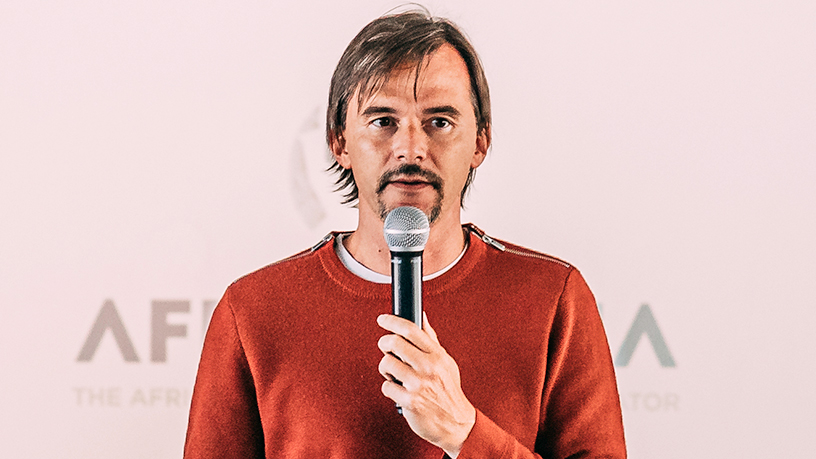The clock is ticking for Windows 10 users. With Microsoft’s official End of Support (EOS) deadline looming in October 2025, South Africans are being…
The New Normal: Africa’s VC sector needs a new paradigm [Opinion]

The New Normal is a new regular column Ventureburn will run, featuring business leaders and how Covid-19 is reshaping the tech world.
Last month AfricArena released its “The State of Tech Innovation in Africa”. Among its many findings, the research highlights the structural fragility of the continent’s tech sector in terms of getting investment to fuel its growth (see this story).
Firstly, the funding remains highly concentrated in the later stage, with over 90% of the $2-billion invested in 2019 going to just a handful of relatively mature startups in just about 70 deals.
This factor is a key structural inhibitor to a sustainable long-term growth of the entire ecosystem, as early-stage startups not raising enough capital limits the number of entrepreneurs that will make it to the maturity level expected by venture capital (VC) investors to make a risk.
To survive, those in Africa’s VC ecosystem must unite to largely rethink the approach, particularly on taking bolder steps
Secondly, the amount of Seed and angel investment — which typically would bridge that gap — is extremely limited.
AfricArena estimates it to be around only $35-million annually across 54 countries. That is far from sufficient for African early-stage founders to have a chance of making a dent in the universe.
Thirdly, the AfricArena report indicates that in a post-Covid-19 world, overall investment in African tech startups will fall by as much as 40%.
Given most startups typically hold about three months of cash on hand, the devastation that may affect the entire ecosystem may result in thousands of talented entrepreneurs falling by the wayside in the coming months.
Why are we in this situation?
It is important to understand that the growth of the investment available on the continent, to a large extent, is backed by international investors — primarily by the development finance institutions (DFIs), and to a lesser extent by corporate investors.
Typically DFIs take 18 months to make a decision on investing in VC firms. Their mandate, which passes onto the VC firms they invest into, creates a replication syndrome — in effect resulting in most African VCs investing in Series-B or Series-C rounds in relatively mature startups with ticket sizes of $1-million and higher. And thus as a result most of these firms compete for essentially the same, limited deal flow.
There are a few exceptions to this, or course, with some accelerator programmes such as MEST, Startupbootcamp or Founders Factory, and a handful of very early-stage VCs.
Yet the industry, structured as it is, with a lack of VCs covering the entire ecosystem, or investors focused on investing $50k to $500k with enough funds to make the required impact, will struggle to adapt to the new post Covid-19 reality.
What can be done?
Never waste a good crisis. The current situation, with corporates expected to cut on spending, a decline in gross domestic product (GDP) and generally difficult market conditions, will inevitably result in a drop of investments. Some startups can brilliantly navigate, but the large majority are struggling, and many failing.
In turn, this will dry up the investment pipelines of most VCs on the continent. There are three things that appear to make sense in terms of what the ecosystem can do.
Firstly, the VC industry must adapt and instead of retreating to just supporting their existing investment, take the opportunity of investing earlier than they would have done – if necessary by getting their limited partnership (LP) to agree to such mandate amendments.
This is the only way that the investment industry will structurally ensure the sustainability of the ecosystem.
Second, debt instruments must be much better utilised than they have in the past.
Venture debt has not been widely utilised by founders, either by lack of offering or by lack of understanding that debt cost is usually lower than equity, at least in the long haul. It would make sense in fact that every VC equip themselves: either via partnerships or via raising ancillary debt funds to provide mixed funding solutions.
Lastly, in a period with large amounts of helicopter money being made available, there is actually a unique opportunity to leverage on all this capital to raise new investment vehicle with the right mandate, and enough local investment team to ensure this also contributes to reinforce the local investment industry, which is essential to the long term economic success of the continent.
For this, flexing and adapting the regulatory framework to be investment-friendly should be a priority on the agenda of governments in Africa.
The potential of Africa to generate highly skilled tech jobs and continue on the great momentum built over the past four years, is dependent on our ability to unite as an ecosystem to largely rethink the approach, particularly on taking bolder steps and operate as a collective — from founders to corporates, investors and institutional stakeholders and government.
This might be the ultimate challenge, and prove long and difficult in a fragmented continent with fragmented ecosystems.
But resilience, creativity and adaptability are key qualities that maintain the humility in Africa’s digital leap. Let’s be the change we want to see.
Read more: New report estimates VC investments in African tech firms could fall by 40% in 2020
*Christophe Viarnaud is a Cape Town based entrepreneur & early stage investor, CEO of Methys, and founder of the French South African Tech Labs, Digital Africa Ventures and half a dozen ventures.
Featured image: Methys CEO Christophe Viarnaud (Supplied)


